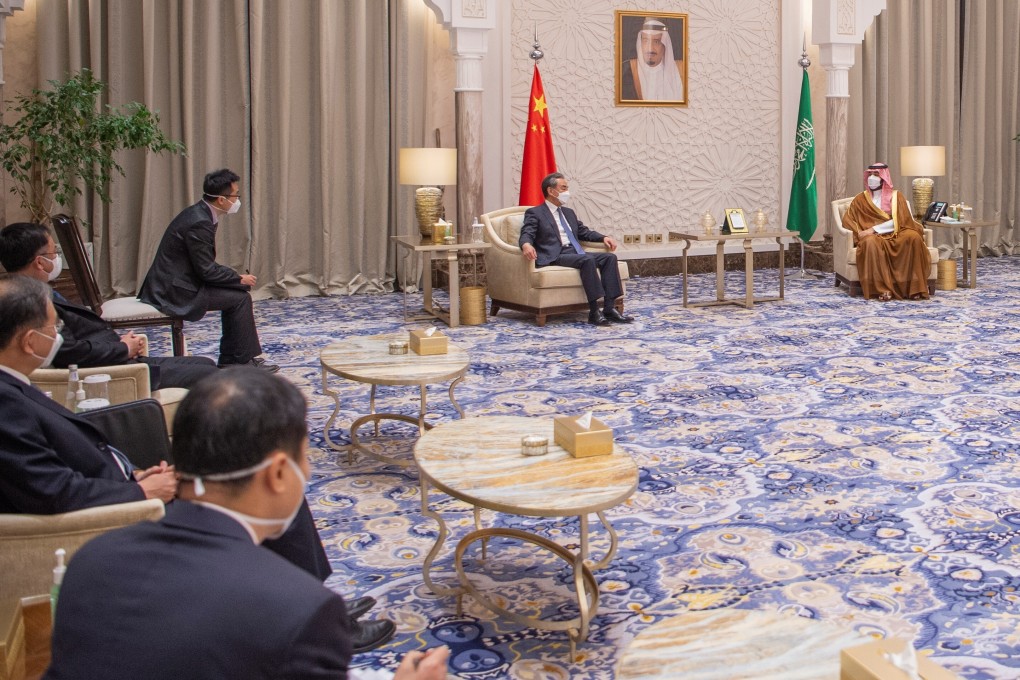Advertisement
As China faces sanctions from the West, it looks to the Middle East for alliance and influence
- Foreign Minister Wang Yi thanks Crown Prince Mohammed bin Salman for Saudi support on Xinjiang and Hong Kong
- Beijing’s relationship with Riyadh may be complicated by its close ties with Iran
Reading Time:3 minutes
Why you can trust SCMP
34

Beijing is trying to beat back a new wave of international sanctions over alleged human rights abuses in Xinjiang, with its Foreign Minister Wang Yi lavishing praise on Saudi Arabia for supporting China‘s policies towards Xinjiang.
Kick-starting his week-long tour of six Middle Eastern countries on Wednesday, Wang said China would prioritise its relations with the Middle East in its quest for support and greater influence in the region.
His remarks came as China’s wrangling with Western countries escalated this week after the European Union, the United States, Britain and Canada took a rare, coordinated move on Monday to punish Chinese officials and entities over Beijing’s crackdown on Muslim Uygurs.
“The sanctions imposed by a few Western countries on China over the Xinjiang-related issues based on elaborately fabricated lies are blatant interference in China’s internal affairs which aims to suppress and contain China,” Wang told Saudi Foreign Minister Faisal bin Farhan Al Saud, according to China’s foreign ministry. “Such acts should be jointly rejected by all other countries.”
During another meeting with Crown Prince Mohammed bin Salman bin Abdulaziz Al Saud, the Chinese diplomat stressed Beijing’s appreciation for the Islamic kingdom’s repeated support on Xinjiang and Hong Kong. He vowed to support Riyadh’s leadership role in the region, including the Saudi initiative to end the conflict in Yemen, and pledged to deepen bilateral cooperation on regional issues, trade, investment, infrastructure and new technologies, such as 5G and big data.
Advertisement
Select Voice
Choose your listening speed
Get through articles 2x faster
1.25x
250 WPM
Slow
Average
Fast
1.25x